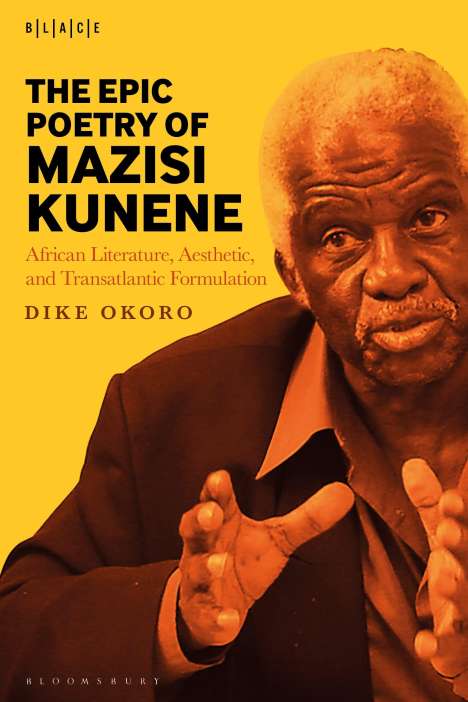Dike Okoro: The Epic Poetry of Mazisi Kunene: African Literature, Aesthetic, and Transatlantic Formulation
The Epic Poetry of Mazisi Kunene: African Literature, Aesthetic, and Transatlantic Formulation
Buch
- African Literature, Aesthetic, and Transatlantic Formulation
- Herausgeber:
- Toyin Falola, Abimbola Adelakun
- Verlag:
- Bloomsbury Academic, 03/2028
- Einband:
- Gebunden
- Sprache:
- Englisch
- ISBN-13:
- 9781501398896
- Umfang:
- 192 Seiten
- Gewicht:
- 454 g
- Maße:
- 229 x 152 mm
- Stärke:
- 25 mm
- Erscheinungstermin:
- 5.3.2028
- Hinweis
-
Achtung: Artikel ist nicht in deutscher Sprache!
Klappentext
An interrogation of the poetry of Mazisi Kunene that places his work in the context of African literature and the richness of the oral tradition, as well as his political activism that connects him to the wider African diaspora.As Africa's foremost epic poet, Mazisi Kunene occupies a unique place in history. In this study, Dike Okoro illuminates the penetrating insights found in Kunene's poetry and the reasons why his art has been considered as masterpieces grounded in geography, history, and culture. He situates Kunene as a theorist who embraces African tradition - including his adoption of izibongo, Zulu praise poetry - and the role of the artist as a chronicler of his people's history, committed to art as a catalyst for change, not justd South Africa but for Africans around the globe.
These essays and interviews address the post-apartheid reality of South Africa and draw from a repository of rich images found in Kunene's poetry to provide examples of depictions of colonial exploitation in Africa; the rootedness of traditional African culture; women and children who bring hope; and art as a way to effect change. They demonstrate Kunene's profound influence on and in world literature, interrogating his work for its style and connections with poetry by Native Americans and other Indigenous literary traditions.
The Epic Poetry of Mazisi Kunene argues that Mazisi Kunene's poetry centers non-human beings (animals and plants), the pristine environment of the olden days, and the cosmology of his Zulu ethnicity, asserting the relevance of his art - in this 21st-century moment of climate crisis - as both a form of activism and a political tool to the African creative writer.


